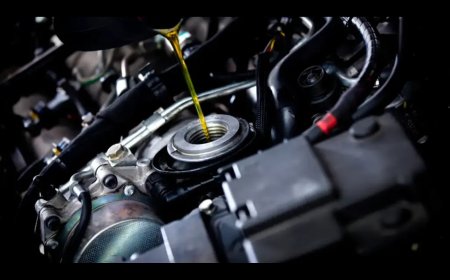Georgia Trucking Authority Explained: MC, DOT & More
Understand Georgia trucking authority requirements—MC, DOT numbers, and more—to stay compliant and run your trucking business legally.

If you're planning to launch a trucking company in Georgia, understanding the legal requirements is the first step toward success. From obtaining the DOT number to securing your MC authority, every step matters. This guide covers everything you need to know about how to get your own trucking authority in Georgia and why its essential for your operations.
What Is Trucking Authority?
Trucking authority is the official permission granted by the Federal Motor Carrier Safety Administration (FMCSA) that allows your company to operate legally as a for-hire carrier. Without it, you can't haul freight across state lines or work with brokers and shippers.
What Is an MC Number?
The MC number, or Motor Carrier number, is issued by the FMCSA. It gives you the legal right to transport goods in interstate commerce for payment. If you're still wondering what is an MC number, think of it as your businesss operating license for trucking across states.
Youll need this number if:
- You plan to haul loads across state lines.
- You want to work with brokers or shippers directly.
- You want to establish your business as a for-hire carrier.
What Is a DOT Number?
The USDOT number is used by the Department of Transportation to track your companys safety records, compliance history, and more. It is required if:
- Your vehicle weighs more than 10,000 pounds.
- You operate in interstate commerce.
- You transport hazardous materials.
For most Georgia-based carriers, both a DOT and MC number are required.
Step-by-Step: How to Get Your Own Trucking Authority in Georgia
Here is a clear and simple guide to getting your trucking authority and meeting all legal requirements.
1. Register Your Business
Start by setting up a legal business entity (LLC or Corporation) through the Georgia Secretary of State. Youll also need to apply for an EIN (Employer Identification Number) from the IRS.
2. Apply for a USDOT Number
Visit the FMCSA registration website and apply online. Be prepared to enter business details, type of operation, and vehicle information.
3. Apply for an MC Number
After your DOT number is issued, apply for your MC number through the Unified Registration System (URS). This is a crucial step in how to get your own trucking authority in Georgia.
FMCSA will charge a filing fee, and your application will be reviewed over the next 21 days.
4. File a BOC-3 Form
This form designates a process agent in every state you operate in. A process agent receives legal documents on your behalf. Most truck permit services can help you complete this step quickly.
5. Secure Commercial Insurance
Before your authority is activated, your insurance company must file proof of insurance with the FMCSA. The required minimum coverage ranges from $750,000 to $5 million depending on what you haul.
6. Register for UCR (Unified Carrier Registration)
All interstate carriers must register and pay an annual fee based on fleet size. This is a federal requirement that applies to carriers in Georgia as well.
7. Set Up IFTA & IRP (If Hauling Interstate)
- IFTA (International Fuel Tax Agreement) is required if your truck crosses state lines.
- IRP (International Registration Plan) is required to register your vehicle across multiple jurisdictions.
These can be handled through the Georgia Department of Revenue.
8. Display Required Numbers
Once approved, display your DOT and MC numbers on both sides of your truck in visible, legible characters.
Why Use Truck Permit Services?
Handling everything yourself can be time-consuming and stressful. Thats where truck permit services come in. They help with:
- DOT/MC registration
- BOC-3 filing
- Insurance compliance
- IFTA and IRP setup
Working with professionals ensures you dont miss any crucial steps and stay compliant.
How Long Does It Take to Get Authority?
If all your documents and insurance are filed correctly, it takes about 21 business days to receive your active authority. Mistakes or delays in filings can stretch this timeline.
Avoid Common Mistakes
- Not having enough insurance coverage
- Incorrect BOC-3 filings
- Skipping UCR registration
- Missing deadlines for renewal
These mistakes can result in delays, penalties, or even denial of authority. Stay on top of every detail to operate legally.
Final Thoughts
Now that you understand what is an MC number and how to get your own trucking authority in Georgia, youre one step closer to launching a successful trucking business. By following each step carefully and using truck permit services when needed, you can stay compliant and focus on growing your fleet.
Whether you're an owner-operator or managing a small fleet, getting your authority is the foundation for long-term success in the trucking industry.


























